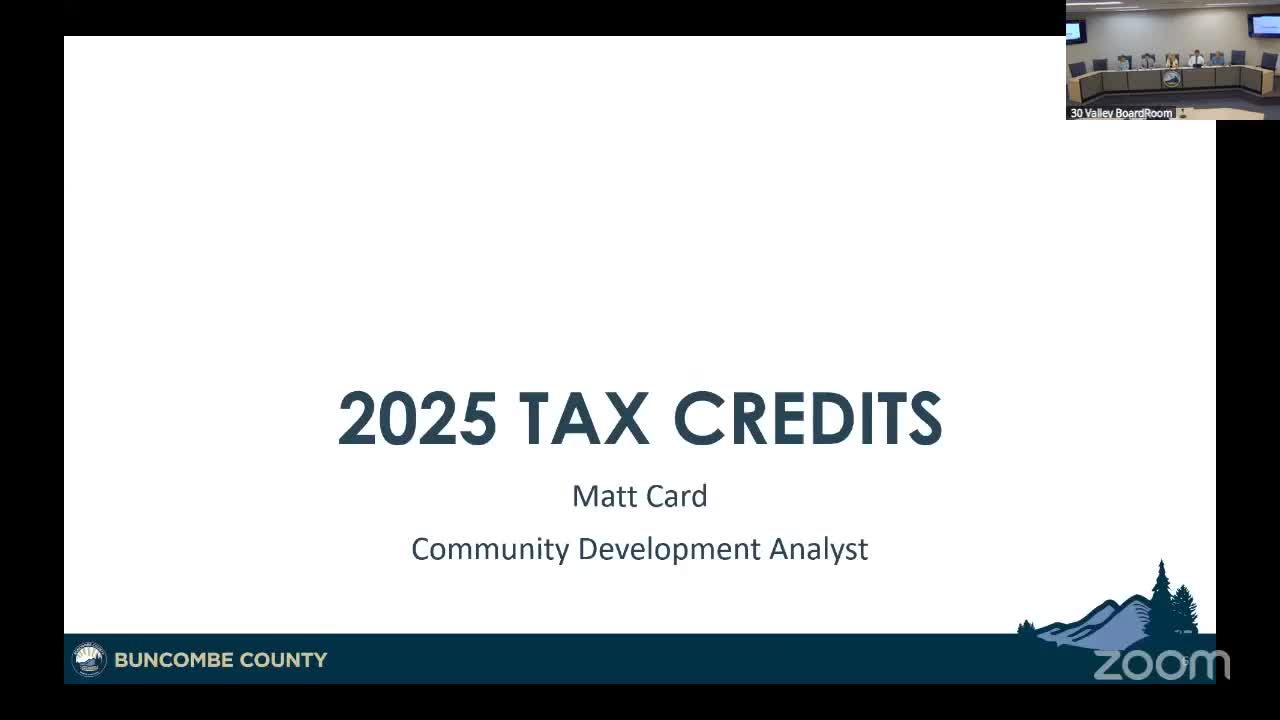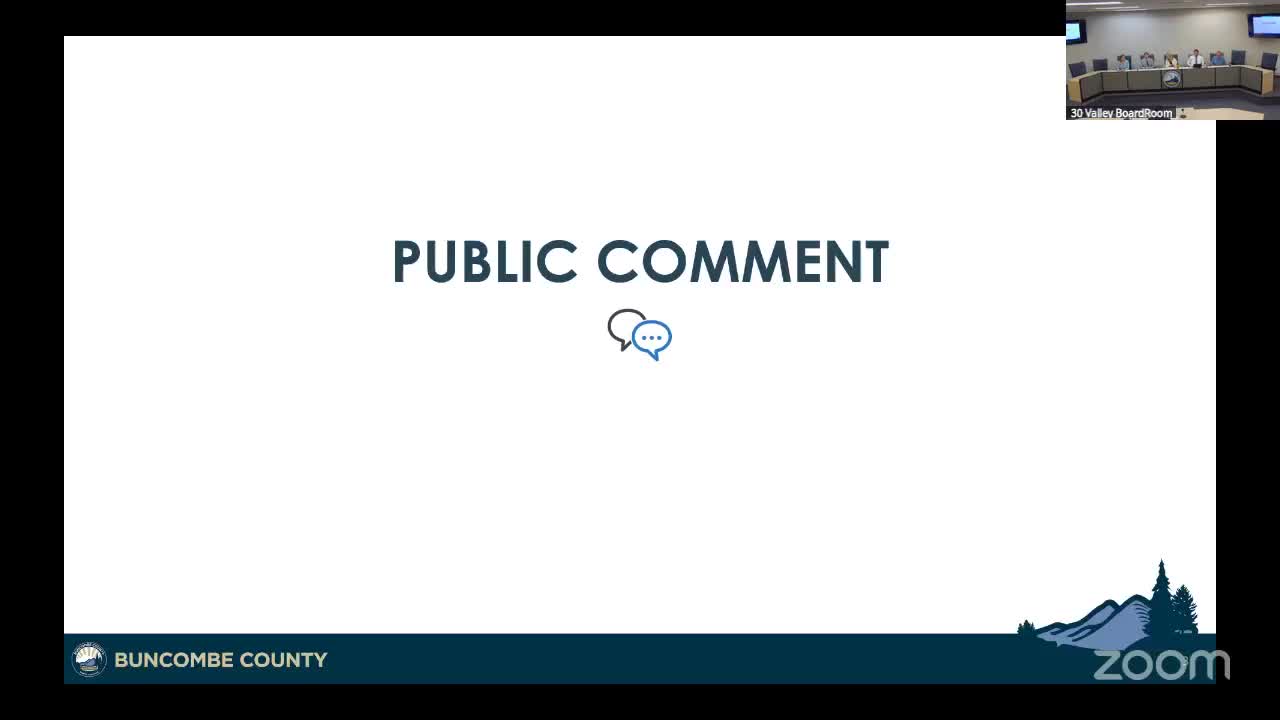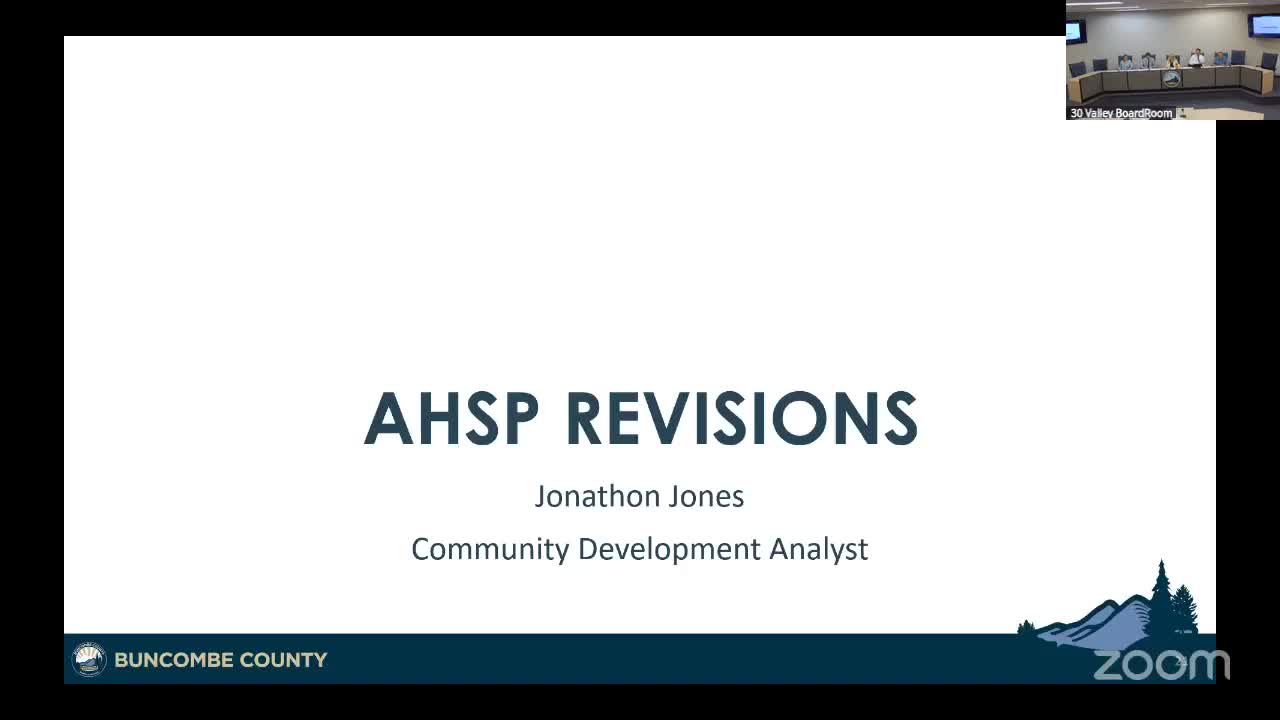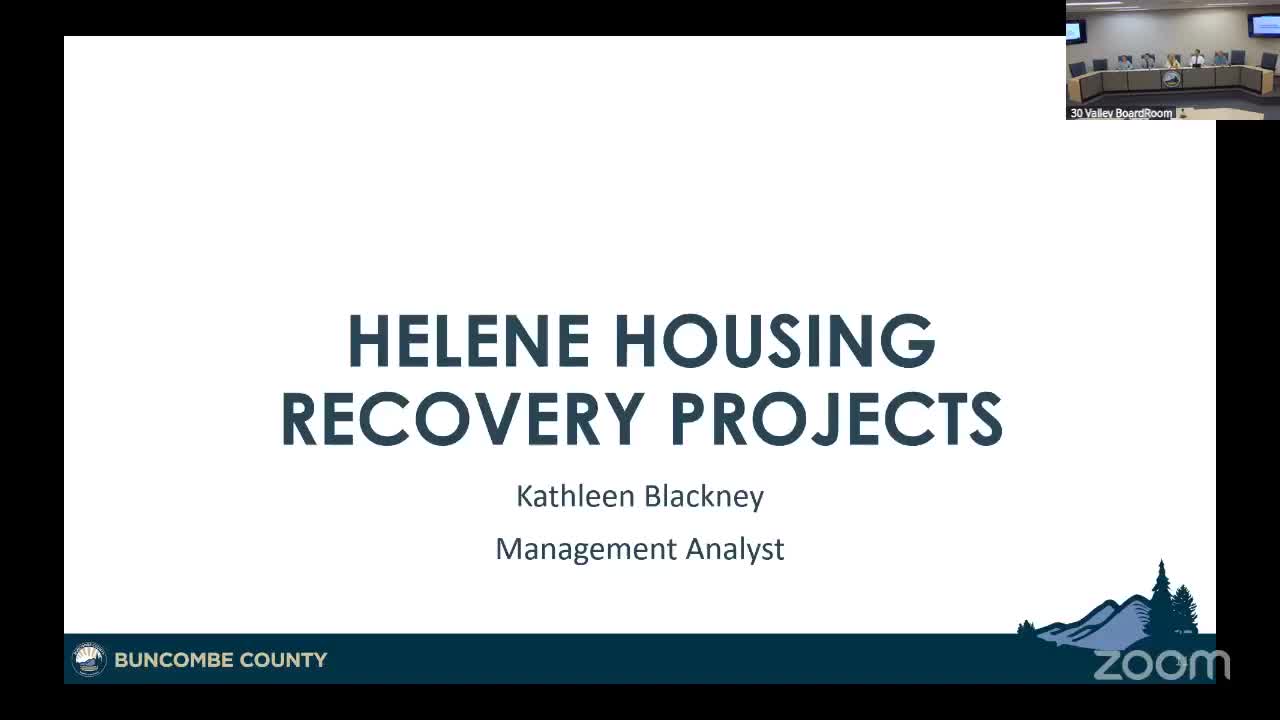Article not found
This article is no longer available. But don't worry—we've gathered other articles that discuss the same topic.

Subcommittee hears overview of low-income housing tax credits; two Buncombe-area projects noted

Votes at a glance: Subcommittee approves minutes and adjourns

Subcommittee reviews proposed Affordable Housing Service Program guideline changes and available funds

